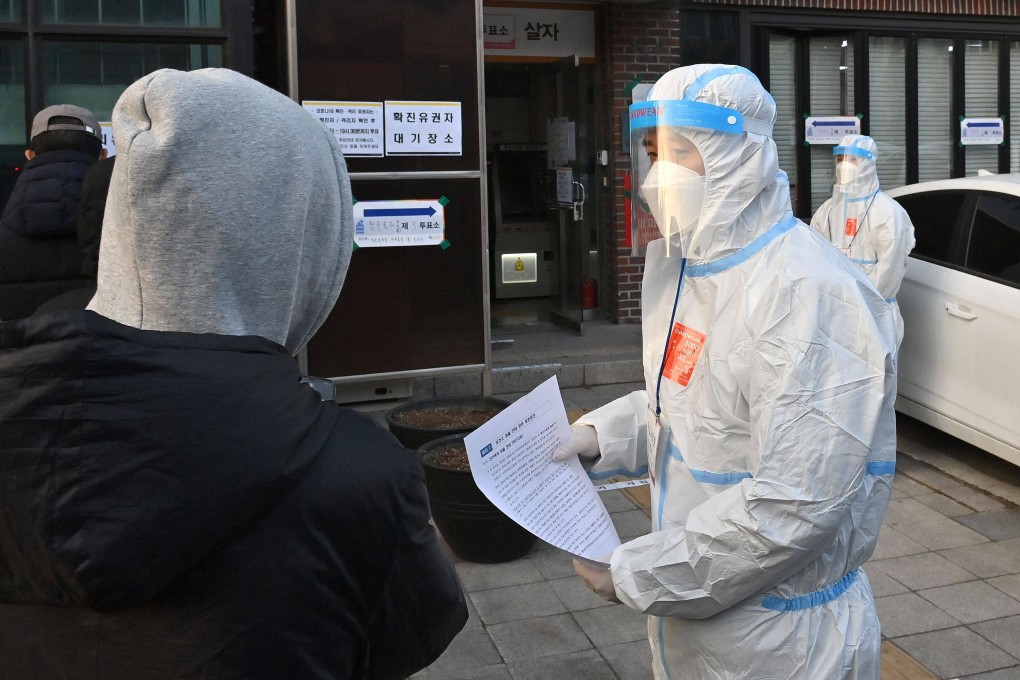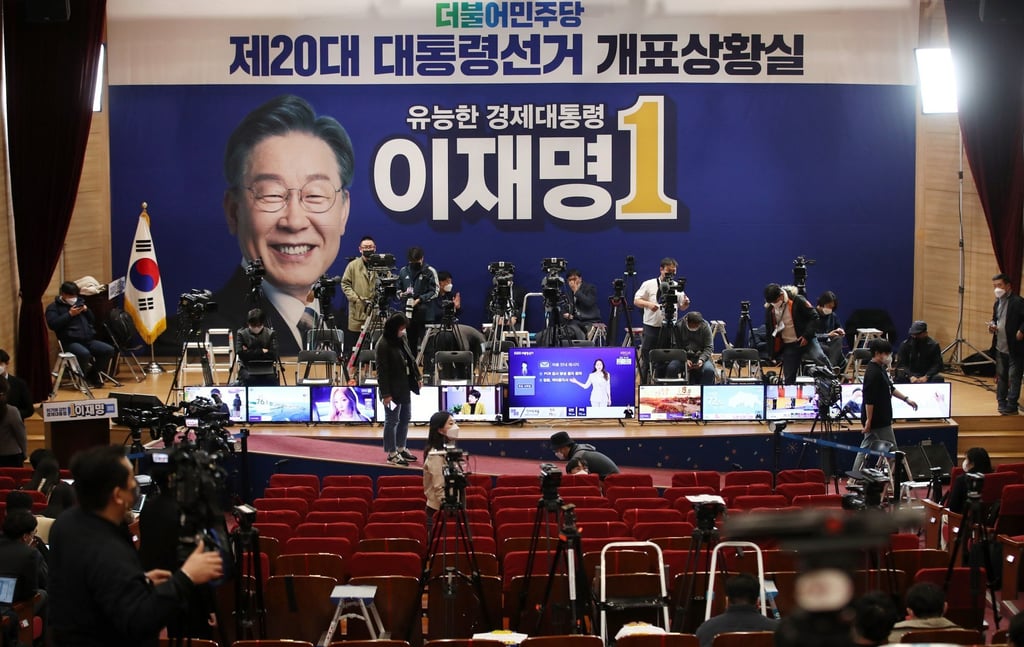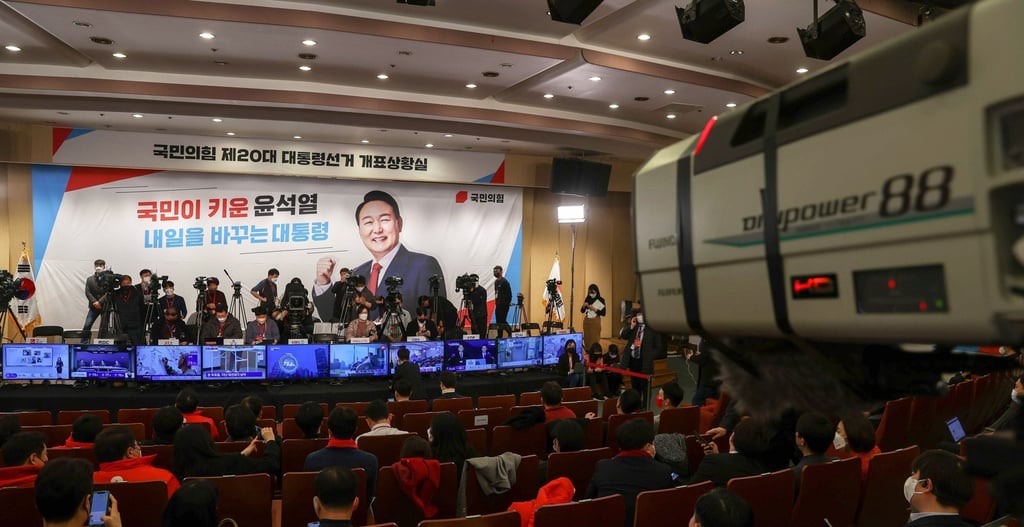South Korean presidential poll closes with choice of young, swing voters likely to prove decisive
- Voters braved a surge in Omicron cases with a high turnout of 65 per cent recorded by 2pm; top domestic concerns include unemployment and inequality
- Sleaze and scandal have marred the poll, which has been billed as a two-horse race between the Democratic Party’s Lee Jae-myung and the People Power Party’s Yoon Suk-yeol

Whoever wins what has been billed as a race between Lee Jae-myung, of the liberal governing Democratic Party, and Yoon Suk-yeol, of the conservative opposition People Power Party, will face a plethora of domestic issues once in office, not least among them skyrocketing house prices and unemployment.

Once inside the stations, voters must present their IDs and in return receive a strip of paper with the names of the 14 candidates on it, including those of two participants who withdrew only after the ballots were printed. Voters then enter a curtained-off booth to mark their ballot.
The stations opened at 6am local time and are officially scheduled to close at 6pm but those who have been infected with the virus have been asked to cast their ballots between 6pm and 7.30pm.

Results of exit polls will be announced at 7.30pm though observers caution that the results of these may be unreliable because the race is too tight to call before the official tally is completed.